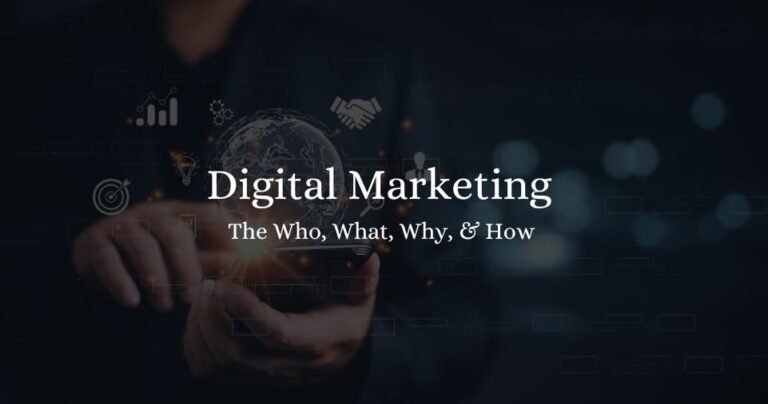How to Use Social Media for Business Promotion?
Social media is no longer optional for businesses. It’s essential. With billions of users across platforms like Facebook, Instagram, LinkedIn, Twitter (X), and TikTok, the potential to reach new customers, build brand awareness, and drive sales is immense.
This guide breaks down exactly how to use social media for business promotion, going beyond the basics to help you create a results-driven strategy.
Why Social Media Matters for Business
| Platform | Monthly Active Users (2024) | Best For |
|---|---|---|
| 3.05 billion | Community building, advertising | |
| 2.35 billion | Visual branding, influencer partnerships | |
| 1.1 billion | B2B marketing, recruiting, thought leadership | |
| TikTok | 1.6 billion | Short-form content, younger audiences |
| X (Twitter) | 500 million+ | News updates, real-time engagement |
Social media enables businesses to:
- Engage directly with customers
- Distribute content instantly
- Build trust and brand loyalty
- Drive traffic to websites
- Generate leads and conversions
Step-by-Step Guide to Using Social Media for Business

Set Clear Goals
Before jumping into posting, clarify what you want to achieve. Your goals should align with your broader business objectives.
Common goals include:
- Increasing brand awareness
- Generating leads
- Driving website traffic
- Boosting sales
- Improving customer engagement
- Building community
Know Your Audience
Understanding your target audience is crucial. Create detailed buyer personas to define who you’re speaking to.
Consider:
- Age, gender, location
- Interests and behaviors
- Challenges and pain points
- Preferred platforms
Choose the Right Platforms
Not all platforms will suit your business. Select based on where your audience spends time and your content strengths.
Examples:
- B2B company? Focus on LinkedIn.
- Selling fashion? Use Instagram and TikTok.
- Local business? Leverage Facebook Groups and Google Business integration.
Create a Content Strategy
Your content is your currency. Build a strategy that balances promotional, educational, and entertaining content.
Content types to include:
- Behind-the-scenes videos
- User-generated content
- Product tutorials
- Customer testimonials
- Polls and questions
- Memes and trending topics
Content Calendar Example:
| Day | Type of Content | Platform |
|---|---|---|
| Monday | Educational blog post | |
| Tuesday | Product spotlight | |
| Wednesday | Behind-the-scenes video | TikTok |
| Thursday | Customer testimonial | |
| Friday | Poll or question | X (Twitter) |
| Saturday | Influencer collab reel | |
| Sunday | Weekly roundup | Facebook Story |
Leverage Paid Advertising
Organic reach only goes so far. Paid social allows you to hyper-target users and scale your efforts.
Ad formats to explore:
- Facebook/Instagram Ads (carousel, video, story ads)
- LinkedIn Sponsored Content
- TikTok In-Feed Ads
- Twitter/X Promoted Tweets
Target ads based on demographics, interests, behaviors, and retargeting website visitors.
Engage Consistently
Social media is a two-way street. Respond to comments, messages, and mentions in a timely manner. Engage with followers’ content as well.
Tips:
- Set up alerts for brand mentions
- Use a social media inbox tool
- Like, comment, and share relevant industry content
Analyze and Optimize
Track performance using analytics tools native to each platform or third-party tools like Hootsuite, Sprout Social, or Buffer.
Metrics to monitor:
- Engagement rate
- Reach and impressions
- Click-through rate (CTR)
- Follower growth
- Conversion rate
Use insights to refine your strategy, test different content types, and double down on what works.
Advanced Tactics for Social Media Promotion
Influencer Marketing
Partnering with influencers who align with your brand can boost credibility and expand your reach.
Choose wisely:
- Prioritize authenticity over follower count
- Evaluate engagement rate
- Use micro-influencers for niche audiences
Contests and Giveaways
Drive engagement and grow your following with interactive promotions.
Best practices:
- Offer relevant, valuable prizes
- Make entry simple (tag, follow, comment)
- Comply with platform rules
Social Proof and Reviews
Showcasing real user experiences builds trust.
How to use it:
- Highlight testimonials in posts
- Share user-generated content
- Display reviews on product pages and profiles
Retargeting Campaigns
Re-engage users who visited your site but didn’t convert.
Example platforms:
- Facebook Pixel
- LinkedIn Insight Tag
- Google Ads remarketing
Use Hashtags Strategically
Hashtags increase discoverability. Mix branded hashtags with trending or niche-specific ones.
Example:
- Branded: #YourBrandName
- Trending: #MondayMotivation
- Niche: #OrganicSkincare
Live Streaming
Live content humanizes your brand and drives real-time interaction.
Ideas:
- Product launches
- Q&A sessions
- Behind-the-scenes tours
Collaborations and Takeovers
Partner with complementary brands or allow influencers to run your account for a day.
Benefits:
- Access to new audiences
- Fresh content
- Increased credibility
Common Mistakes to Avoid

| Mistake | Why It Hurts |
|---|---|
| Inconsistent posting | Reduces visibility and engagement |
| Ignoring analytics | Misses opportunities to improve |
| Being overly promotional | Turns off followers, feels inauthentic |
| Neglecting comments/messages | Misses engagement and damages trust |
| Using irrelevant hashtags | Limits reach and looks spammy |
Tools to Boost Your Social Media Success
| Tool | Function |
|---|---|
| Canva | Design visual content |
| Hootsuite | Schedule and manage posts across platforms |
| Buffer | Social media management and analytics |
| Later | Instagram-focused planning |
| Sprout Social | All-in-one engagement and analytics |
| Bitly | Link tracking and shortening |
ALSO READ: How to Install a Smart Thermostat Yourself?
Conclusion
Social media offers immense opportunities for businesses willing to invest the time and strategy. By setting clear goals, knowing your audience, delivering consistent value, and using both organic and paid tactics, you can build a powerful online presence that drives results.
Track your efforts, adapt as you learn, and stay current with trends. Social media is dynamic—your strategy should be too. Whether you’re a startup or an established brand, mastering social media promotion can transform your business growth.






